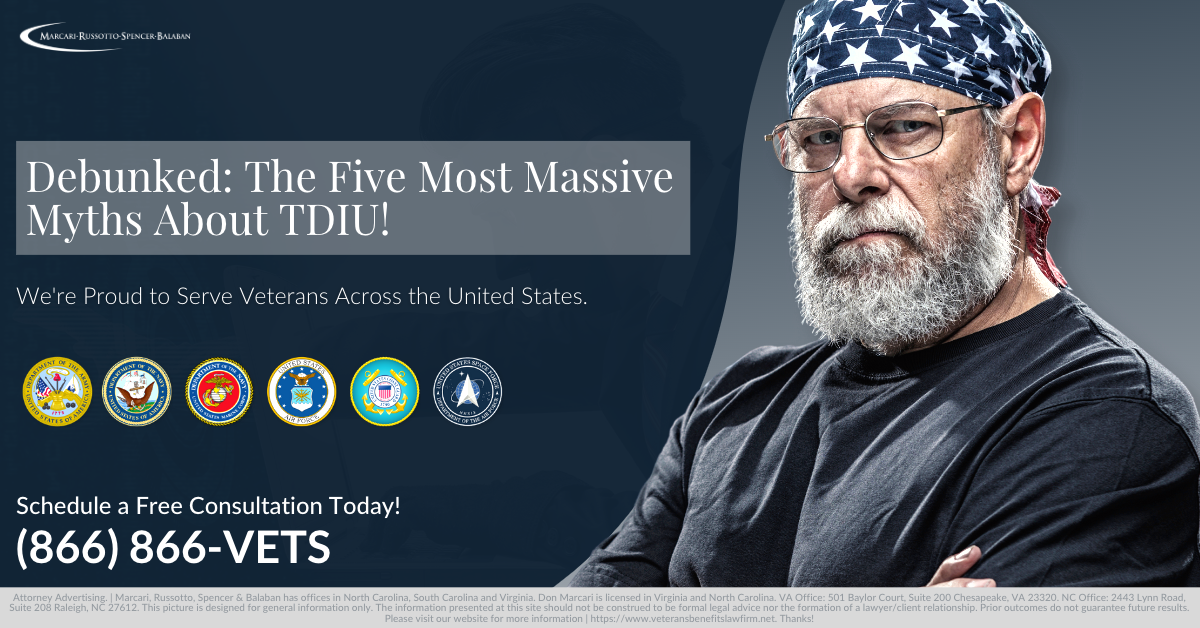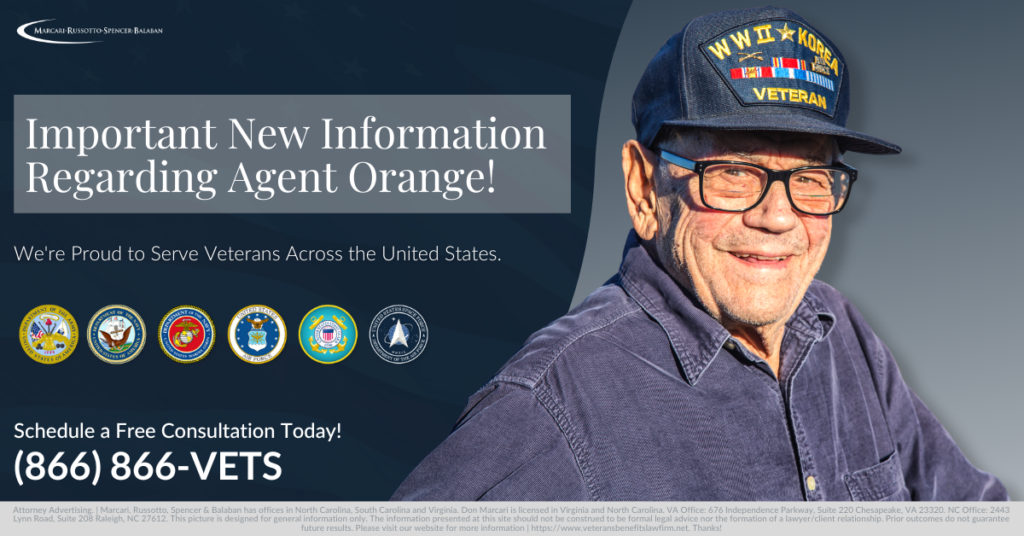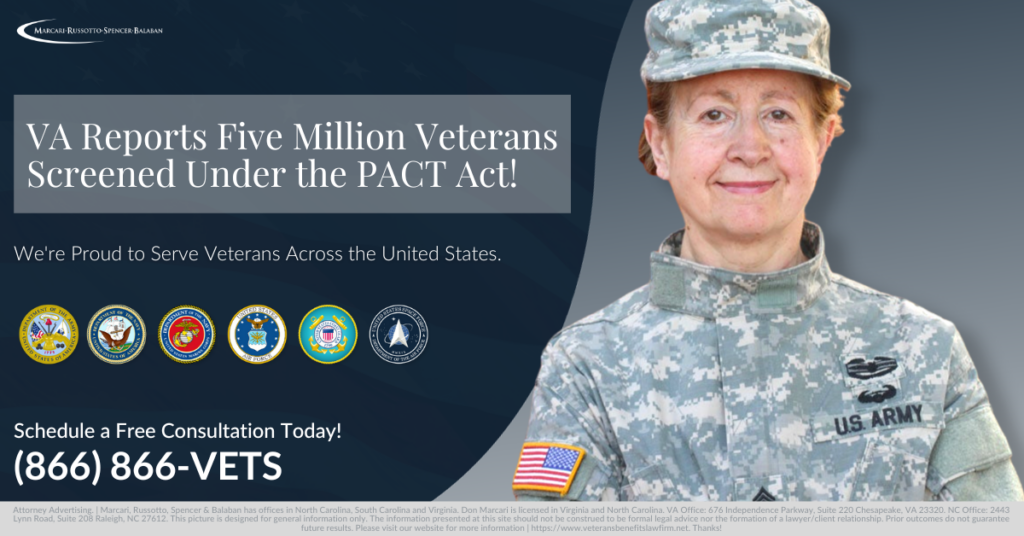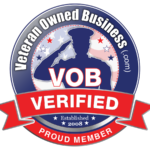Table of Contents:
ToggleDid the Department of Veterans Affairs (VA) deny your benefits claim for a total disability rating due to individual unemployability?
Often, we see Veterans seek out TDIU benefits even though their service-connected disability does not fully add up to 100%. The VA offers TDIU benefits to these Veterans due to the fact their disability does not allow them the opportunity to maintain gainful employment.
Gainful employment, in the eyes of the VA, should be income at such a point it separates a Veteran from the federal poverty level. As of right now, the VA does not consider self-employment and a position void of termination to be applicable forms of gainful employment.
A disabled Veteran can receive over $3,000 USD a month from the VA in TDIU benefits. Additional funds may be awarded if the Veteran in question is married and has dependent children and/or parents.
Below, we have outlined five of the biggest myths when it comes to obtaining TDIU benefits. Check it out!

Myth #1: Veterans Who Are Employed Cannot Also Receive TDIU Benefits.
As of today, the annual FPL for an individual is $13,590 ($1,133 / month), and for a married couple is $18,310 ($1,526 / month).
This would mean that if a Veteran is employed, but is earning less than $13,590 USD/year, they could end up being eligible to receive TDIU benefits despite their active employment.
In some other cases, a Veteran who is earning over the FPL may also qualify if the VA considers them to work inside of a protected environment. Unfortunately, the VA has not clarified what constitutes as protected, but if a Veteran can prove that their service-connected injuries are preventing them from completing their job in a timely manner or that their employer has had to make special accommodations, their employment can be viewed as protected.
Example: A Veteran who has a service-connected hip injury, who works as a tour guide. If they were allowed to use a motorized wheelchair or a scooter to complete their tours, when nobody else has, this would be considered special accommodation on their behalf.
Myth #2: I Do Not Meet the Percentage Requirements, the VA will not Grant Me TDIU.
In most cases, the VA does not grant TDIU whenever a Veteran is lacking one individual 60% rating or a combined 70% rating made up of one specified at 40% – however, the VA does make exceptions.
If the Veteran is rated less than 60%, and is vying for TDIU disability benefits, they may be able to apply by using something called an extra schedular rating.
An extra schedular TDIU rating is when the VA criteria for a Veteran’s disability does not reflect the severity of the actual issue – the VA corrects this by giving more than the maximum percentage allowed.
Example: If a Veteran is suffering from non-Hodgkin Lymphoma and is rated at 40%, but they can show that their non-Hodgkin Lymphoma causes severe pain and prolonged sickness with accompanying fever, they may have a compelling case for an extra schedular rating.
Myth #3: I Have Social Security, The VA Will Automatically Grant TDIU.
Wrong.
To be considered eligible for either TDIU or SSD, a Veteran must be unable to work due to a physical or mental disability, but differences between the two are commonly confused with each other.
The VA considers a Veteran’s service-connected disability, the Social Security Administration (SSA) will consider all disabilities. Furthermore, a Veteran may be eligible for TDIU if their disability restricts them from doing past work, while SSDI looks at the ability to do any form of work as a disqualifying factor.
Finally, the VA cannot consider the age of a Veteran when looking at granting TDIU, while age is one of the most crucial factors in an SSDI claim.
Myth #4: Any Condition, Service-Connected or Not, is Relevant to TDIU.
Can TDIU be permanent and total? Not always.
When determining entitlement to TDIU, the VA only considers disabilities that are service-connected.
A Veteran may very well have a knee injury that makes walking and standing difficult and a back injury – which is not service-connected, but that is commonly aggravated by their need to sit down for extended periods of time. The VA will not consider the back injury, no matter how much it impacts the Veteran in their daily activities since it is not service-connected.
Myth #5: TDIU Can Never Be Taken Away, Once I’ve Got It, it’s Forever.
Unless a Veteran’s service-connected disability is permanent and total, the VA can look to reevaluate the severity of the Veteran’s conditions by rescheduling compensation and a TDIU exam.
If the Veteran’s disabilities have improved in any way, the VA may revoke TDIU.
In addition, the VA will also periodically ask that the Veteran submit a certification of non-employment.









